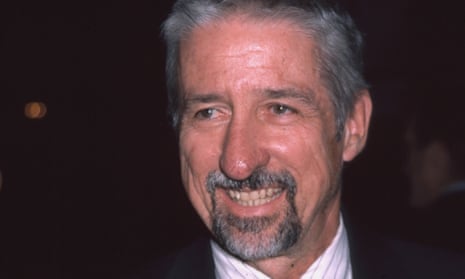The 1960s anti-war activist Tom Hayden, whose name became forever linked with the celebrated Chicago seven trial, Vietnam war protests and his ex-wife, actor Jane Fonda, has died aged 76.
Hayden died on Sunday after a long illness, said his wife, Barbara Williams. He had a stroke in 2015.
Once denounced as a traitor by his detractors, he won election to the California assembly and senate where he served for almost two decades as a progressive force on issues such as education and the environment. He was the only one of the radical Chicago seven defendants to win such distinction in the mainstream political world.
He was an enduring voice against war and spent his later years as a prolific writer and lecturer advocating for reform of US political institutions.
The Los Angeles mayor, Eric Garcetti, praised Hayden on Twitter: “A political giant and dear friend has passed. Tom Hayden fought harder for what he believed than just about anyone I have known. RIP, Tom.”
Hayden wrote or edited 19 books, including Reunion, a memoir of his path to protest and a rumination on the political upheavals of the 1960s.

“Rarely, if ever, in American history has a generation begun with higher ideals and experienced greater trauma than those who lived fully the short time from 1960 to 1968,” he wrote.
Hayden was there at the start. In 1960, while a student at the University of Michigan at Ann Arbor, he was involved in the formation of Students for a Democratic Society (SDS), then dedicated to desegregating the south. By 1962, when he began drafting the landmark Port Huron Statement, SDS and Hayden were dedicated to changing the world.
“We are people of this generation, bred in at least modest comfort, housed now in universities, looking uncomfortably at the world we inherit,” began the statement, which outlined a plan for a revolutionary campus social movement.
Hayden was fond of comparing the student movement that followed to the American revolution and the civil war.
In 1968, he helped organise anti-war demonstrations during the Democratic national convention in Chicago that turned violent and resulted in the notorious Chicago seven trial. It began as the Chicago eight trial, but one defendant, Bobby Seale, was denied the lawyer of his choice and ultimately received a separate trial.
After a circus-like trial, Hayden and three others were convicted of crossing state lines to incite riot. The convictions were later overturned, and an official report deemed the violence “a police riot”.
The trial became the subject of books, a play and Hayden’s own reflections in Voices of the Chicago 8: a Generation on Trial.
In 1965, Hayden made his first visit to North Vietnam with an unauthorised delegation. He found out later that his movements were being tracked and recorded by the FBI, as they would be from then on. In 1967, he returned to Hanoi with another group and was asked by North Vietnamese leaders to bring three prisoners of war back to the US. With the prisoners suffering medical problems, the US state department thanked Hayden for his humanitarian action.
Firmly committed to the anti-war movement, Hayden participated in sit-ins at Columbia University, then began travelling the country to promote a rally in Chicago for the 1968 Democratic national convention.
In 1971, Hayden met Jane Fonda, a latecomer to the protest movement. “She came from the orbits of fame, power and success. A popular actress and the daughter of Henry Fonda, she burst like a dislocated star onto the movement scene ... but came only slowly and haltingly into my life,” he wrote.
They were married for 17 years and had a son, Troy.
Both Hayden and Fonda were demonised by the political right after she visited North Vietnam in 1972 and was photographed on an anti-aircraft gun. It took many decades to minimise her “Hanoi Jane” label.

With heavy financial support from Fonda, Hayden plunged into California politics in the late 1970s. He formed the Campaign for Economic Democracy and was elected to the assembly in 1982. In 1992, Hayden won election to the state senate advocating for environmental and educational issues. However, his radical past disturbed conservatives and interfered with his legislative initiatives.
By then, he and Fonda were divorced as she returned to acting and built an exercise empire. Fonda later married and divorced billionaire Ted Turner. Hayden married actor Barbara Williams, and they had a son, Liam.
In 1994, Hayden was defeated in a run for the state governorship, and he lost a bid to become mayor of Los Angeles. After leaving public office, Hayden wrote and travelled extensively, lecturing, teaching and speaking out against the wars in Iraq and Afghanistan.
Hayden acknowledged at the end of his memoir that his time as a counterculture rebel had been the most exciting and fulfilling of his life. “Whatever the future holds and as satisfying as my life is today,” he wrote, “I miss the 60s and I always will.”
